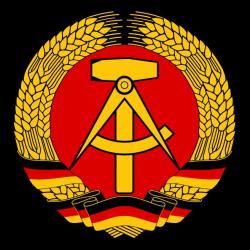 How Pope John forged relations with the Communists by sending birthday greetings to himself (1961)
How Pope John forged relations with the Communists by sending birthday greetings to himself (1961)
The West’s acceptance of the Berlin Wall indicated that Communism was going to remain unchallenged and was there to stay. This obliged the Church to find a way to begin negotiating with its sworn enemies ― without this looking like cynical political manoeuvring. The solution was ingenious.
 It was 13 August 1961 and Communist East Germany was losing its population to the West. Something had to be done to stanch the flow. At first the barrier was just barbed wire, so that if the West showed any resistance, it could be quickly taken down. But there was none. Indeed, after only a few months the American Ambassador in Moscow informed the Soviet government that the US accepted the Wall as “a fact of international life”. [1] Khrushchev wrote in his memoirs, “We had forced the West to recognize the GDR’s [East Germany’s] unwritten rights” to control its own territory and borders. [2] This accommodation to Communism, called Ostpolitik (German for “eastern politics”) henceforth became the policy of the Western nations.
It was 13 August 1961 and Communist East Germany was losing its population to the West. Something had to be done to stanch the flow. At first the barrier was just barbed wire, so that if the West showed any resistance, it could be quickly taken down. But there was none. Indeed, after only a few months the American Ambassador in Moscow informed the Soviet government that the US accepted the Wall as “a fact of international life”. [1] Khrushchev wrote in his memoirs, “We had forced the West to recognize the GDR’s [East Germany’s] unwritten rights” to control its own territory and borders. [2] This accommodation to Communism, called Ostpolitik (German for “eastern politics”) henceforth became the policy of the Western nations.
The West’s acceptance of the Berlin Wall showed the Vatican that Communism was going to last for some time. However, the Church didn’t want to talk cynically of resigning itself to “a fact of international life”. With far more finesse than that, it stage-managed its own public acceptance of political reality. Secretly Pope John XXIII asked the Secretary of the Italian Communist Party to get Khrushchev to send him greetings on his eightieth birthday (25 November 1961). The pope then publicised the greetings as “a sign from Divine Providence” and “responded” to them by sending Khrushchev his prayerful thanks. With this, the pope succeeded in getting the leader of the Communist world to make the overture and then justified his “response” in the name of “human brotherhood” and “universal peace”. [3]
Three months after the West had abjectly resigned itself to the Berlin Wall, the Catholic Church managed to engineer its own face-saving way to start dealing with the Communists in a less clandestine fashion than before. This provided the opening for the skilful Casaroli who was appointed the Vatican's roving ambassador that same year. These negotiations led to quiet agreements with Hungary (1964), Yugoslavia (1966) and Poland (1974). And it all came about after Pope John sent birthday greetings to himself.
 Explanation for non-native speakers of English
Explanation for non-native speakers of English
The illustration is from a poem for children, “King John's Christmas”, (A. A. Milne, Now We Are Six, 1927), which playfully claims that this mediaeval English king was so unpopular that no one sent him Christmas cards and that: The cards upon his shelf / Were only from himself.
He is known as “Bad King John” because he broke a concordat. King John contravened the Concordat of London, when in 1207 he refused to accept the pope's choice of Archbishop of Canterbury. “The quarrel with the Church damaged John's later reputation, for it was monks who would write the history of his reign.”
Notes
1. Peter Robinson, “Tumbling Down”, [Review of The Fall of the Berlin Wall, by William F. Buckley Jr.], National Review, 22 March 2004. http://www.nationalreview.com/books/robinson200404061411.asp
2. Peter Lucas-Roberts, Berlin Crisis, 1958-1961: Origins of the Wall, p. 29
http://library.willamette.edu:85/student/import/59941221172005_2005-007.pdf
3. Peter Hebblethwaite, John XXIII, Pope of the Council, Geoffrey Chapman, London, 1985, p. 393.
4. Vatican Information Service, “Holy See Diplomacy”, summary of the talk by Archbishop Giovanni Lajolo on 15 November 2004. http://www.ewtn.com/vnews/getstory.asp?number=62441







